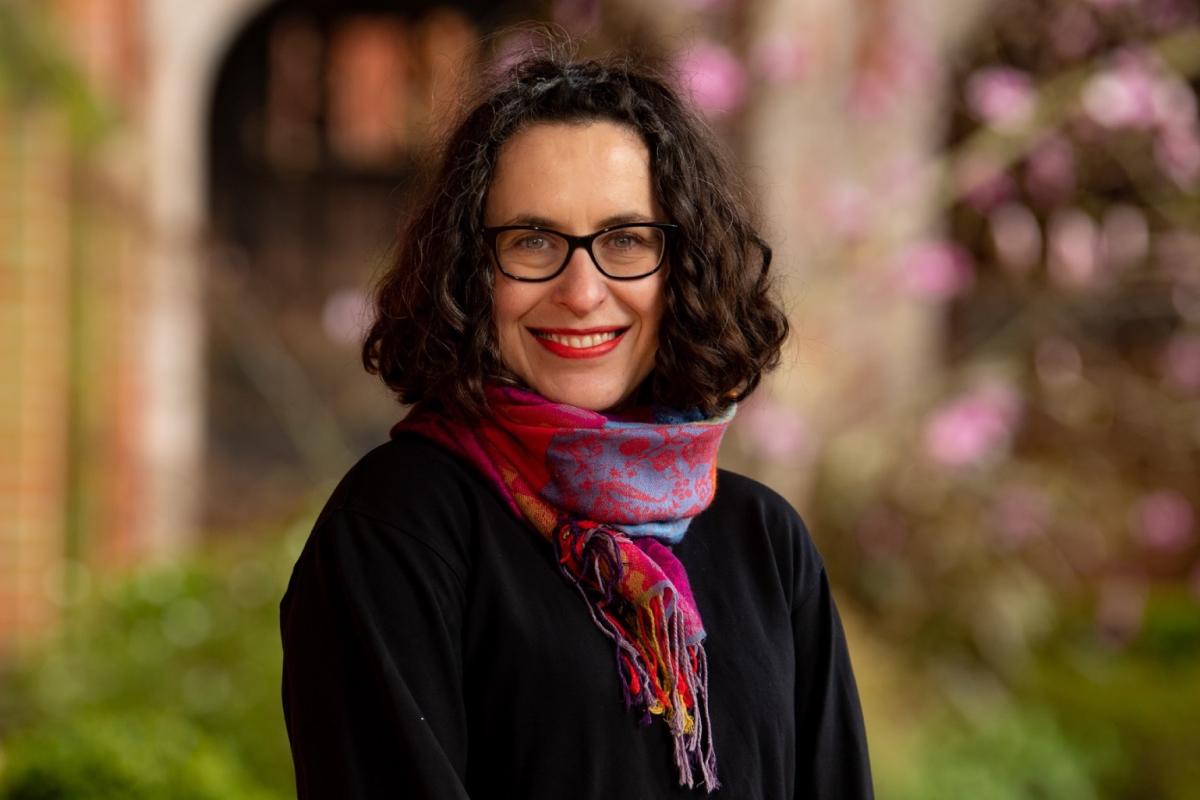What can societies do to recover from violent conflict? How can they strike a balance between looking back – investigating and addressing human rights violations – and looking forward, building a new society where peace can take hold?
These are the central questions of the field of transitional justice. And they are the challenges to which Louise Mallinder, the Spring 2024 Pozen Center Visiting Professor, has devoted her career.
As a scholar – based at the Senator George J. Mitchell Institute for Global Peace, Security and Justice at Queen’s University, Belfast, where she is the deputy director – Mallinder has analyzed transitional justice laws and initiatives all around the globe. As a practitioner, she has lent her expertise to transitional justice development and advocacy efforts, in Northern Ireland and beyond.
Her Spring quarter course, “Transitional Justice During Conflict and Peace” (HMRT 22704), will teach students the basic principles and dilemmas of transitional justice, then examine case studies of initiatives in Northern Ireland, Sierra Leone, and Ukraine. It will also consider the difference between pursuing transitional justice while conflict is ongoing, during peace negotiations, and afterward.
“The class will be an introduction to transitional justice for students who might be interested in helping to make it a reality, whether through work in the law, in government, or in advocacy,” says Mallinder. “That’s why using case studies is so important. Even though transitional justice efforts are shaped by the universal norms of human rights law, they are always inevitably influenced by local context. Studying how things play out on the ground is key to developing future initiatives that succeed.”
When exploring the real-world complexity of advancing transitional justice, Mallinder will draw on her own fieldwork on the subject in Cambodia, Chile, South Africa, Israel, Palestine, Tunisia, Argentina, Uganda, Uruguay, and Bosnia-Herzegovina.
Her teaching will also informed by her own considerable experience as an advocate and practitioner. Since 2016 she has been part of the Institute for Integrated Transitions, a global organization that gives support to transition processes around the world. In Northern Ireland she has been persistently involved, as a policy advisor and civil society collaborator, in efforts to deal with the painful legacy of bloody sectarian conflict, including thousands of unsolved murders.
Between 2019 and 2021 Mallinder collaborated on transitional justice efforts in Ukraine, working as a consultant to peace mediators who were helping government officials and civil society actors drafting laws that would facilitate a hoped-for reintegration of territory annexed by Russia.
Mallinder has also long been interested in making information about transitional justice mechanisms as widely available as possible. This was what motivated her to develop the dataset behind the Amnesties, Conflict, and Peace Agreement Database, a searchable collection of transitional justice agreements introduced around the world between 1990 to 2016.
Today her work on that dataset continues with PeaceRep, an international team of researchers, mediation practitioners, lawyers, data scientists, and communications professionals who work together to disseminate research on peace and transitional justice efforts.
In addition to teaching her course, Mallinder will be the interlocutor at a March 28 public talk by Monica McWilliams, one of the negotiators of Northern Ireland's Good Friday Agreement. She will also give a public talk on April 18 about the current global state of amnesty norms and laws.

